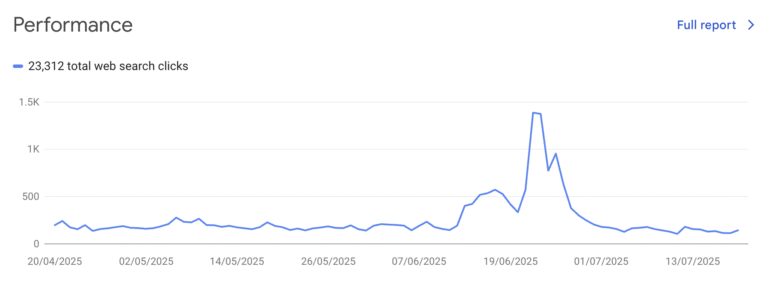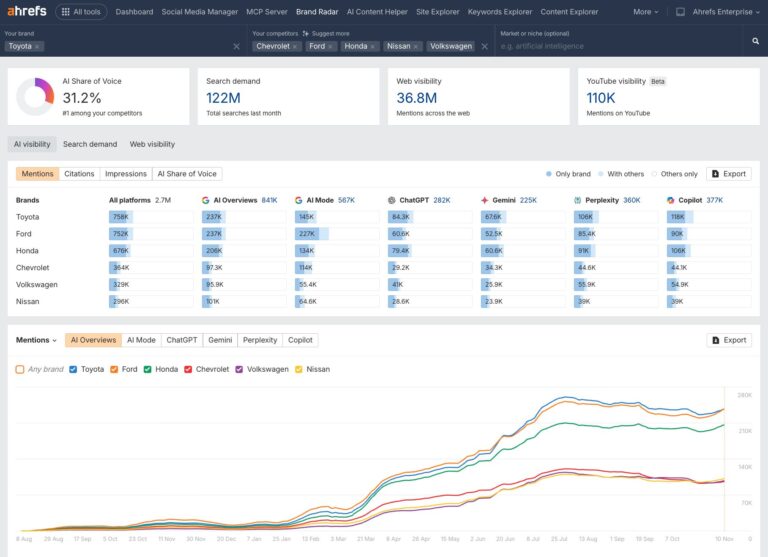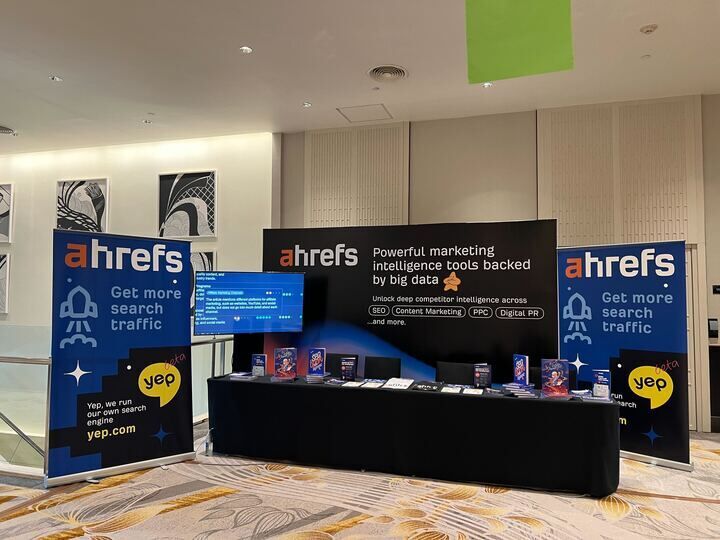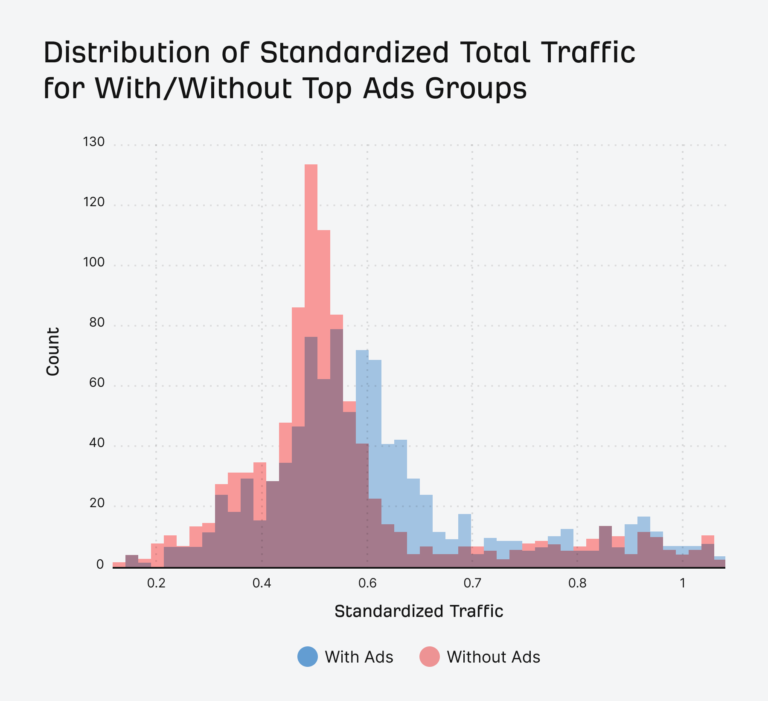How much do traditional and AI search results overlap?
AI models draw on search engine indexes to enrich their static training data in a process known as retrieval augmented generation (RAG), so some crossover between AI and search results is to be expected.
But how much does your visibility in search align with your presence in AI?
With the help of Xibeijia Guan, I was able to study 1.9M citations from 1M AI Overviews to find out—analyzing the top 3 most visible citations in each response.
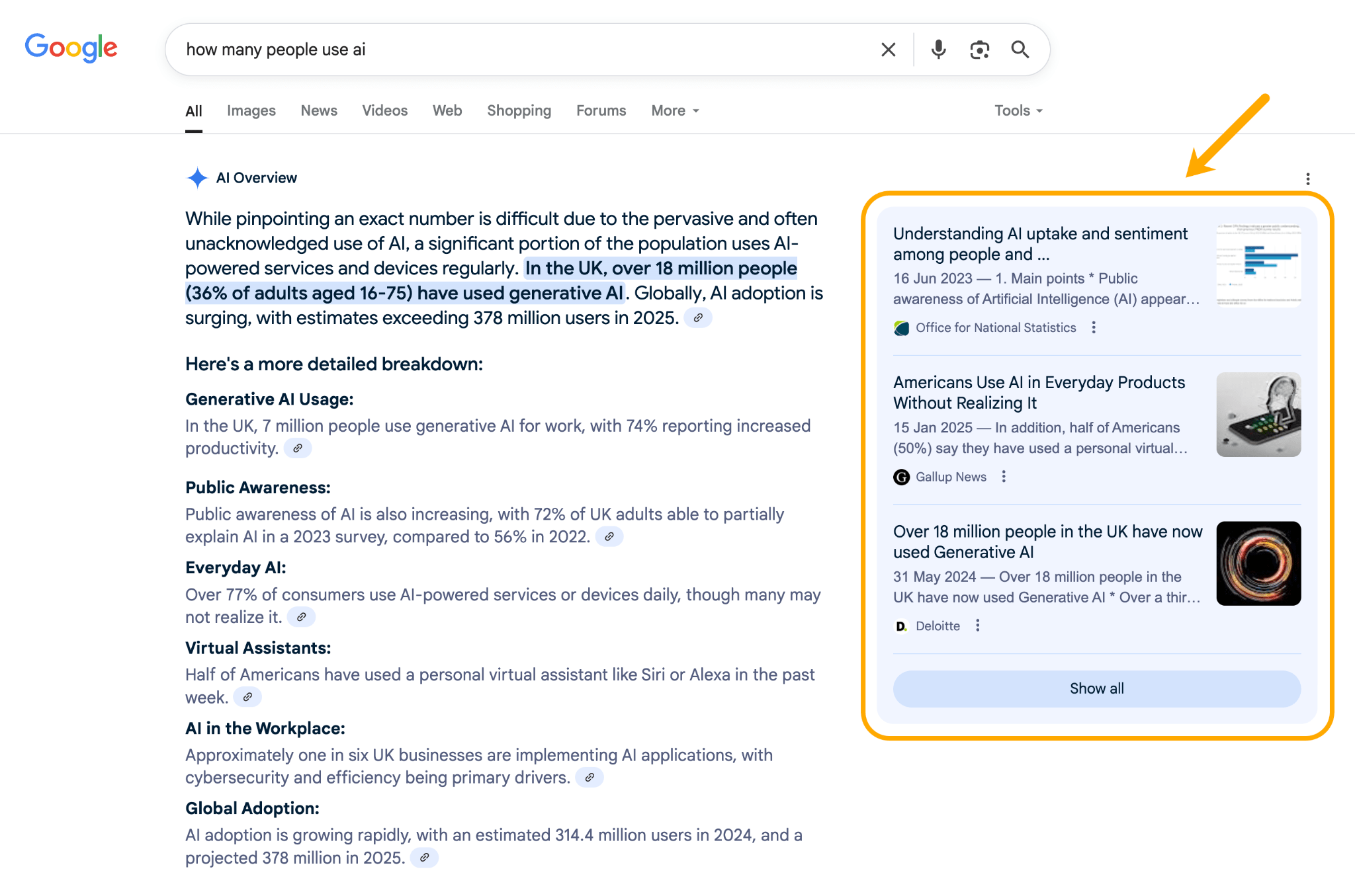
We’d seen theories circulating that some lower ranking pages get cited because they better answer AI’s synthetic fan-out queries. We set out to test that.
What we found:
We expected that if lower ranking content was cited during the query fan out process, it would return for more detailed (read: longer) queries, and for lots of synonymous (read: more) keywords—given the long-tail nature of fan out queries.
Instead, we found that pages cited beyond the top 10 actually appeared for fewer keywords, and returned for shorter queries.
| Average | Ranks in top 10 | Ranks position 11–100 |
|---|---|---|
| # of keywords | 1020 | 887 |
| length of keywords | 5.4 | 5.2 |
| length of “top keyword” | 8.5 | 7.7 |
This doesn’t neatly fit with our expected profile of fan-out query content.
Content is cited in AI for a growing number of complex reasons, from its freshness to its alignment with specific user preferences—and even past prompts.
The ~10% of results that “rank beyond the top 10” likely represent a culmination of all of these factors.
Wrapping up
While 14% of AI-cited content doesn’t rank in the top 100, this seems to be the exception rather than the rule.
AI Overview visibility and search visibility appears to overlap fairly significantly.
Meaning that, when you show up in search, you have a greater chance of also being cited in Google’s AI results.
That said, my colleague SQ just ran a study on the correlation between search ranking and AI Overview visibility.
The result was a positive yet moderate correlation, suggesting that while rankings do matter, there are other factors are at play.
It’s true that if you rank #1 in the SERPs, you’re more likely to be cited in an AI Overview than if you were ranked lower. But that chance is a coin flip at best.
With those odds, it’s still important to monitor both your traditional rankings and AI citation performance to get the complete picture of your search visibility.
You can do this with Ahrefs. Head to the Organic Keywords report in Site Explorer to assess your rankings, and check out Ahrefs Brand Radar to view all of your AI Overview links.
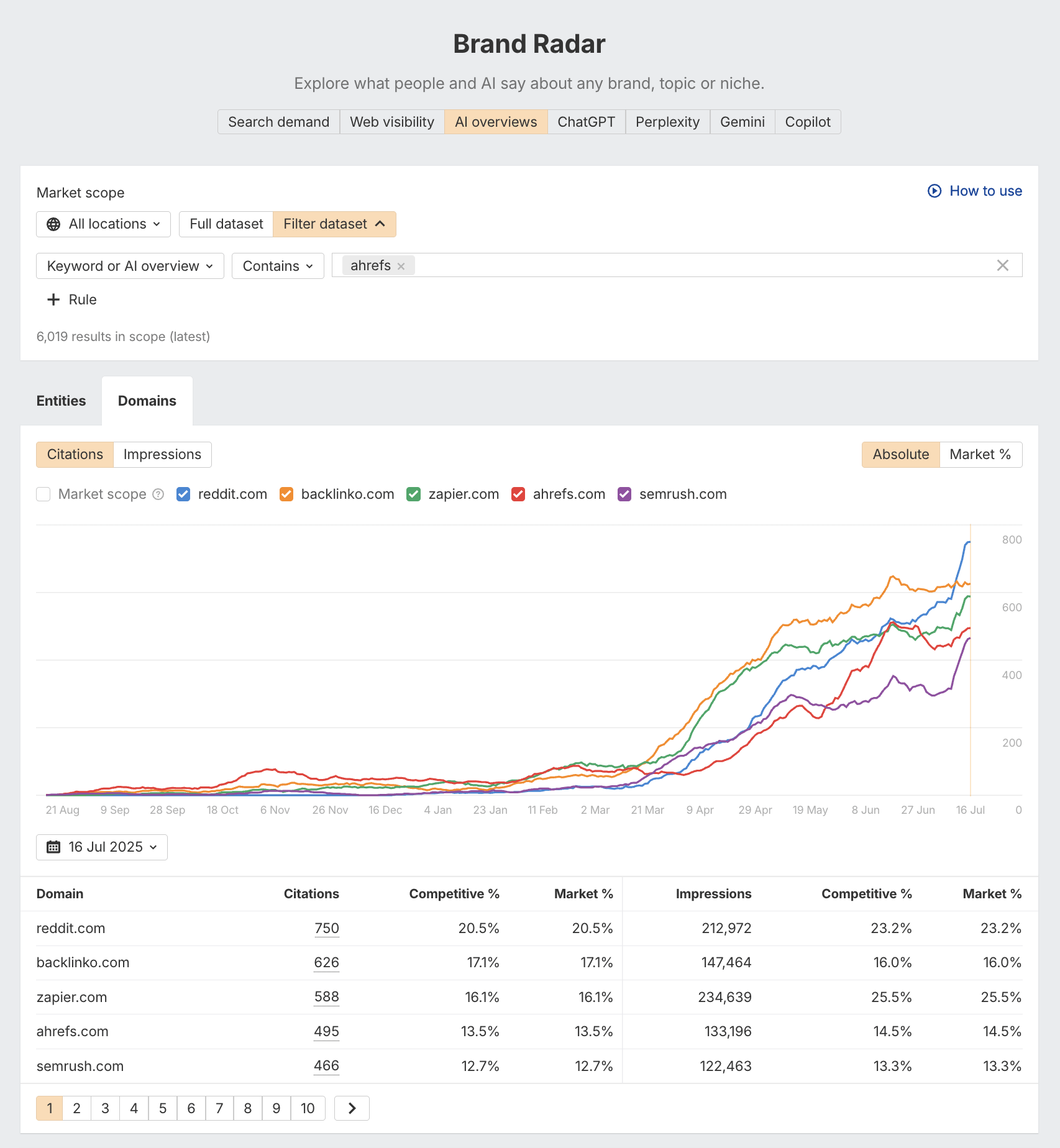
For now it seems AI Overview citations are still largely driven by traditional search success, meaning the SEO fundamentals are still just as important.
Further reading


